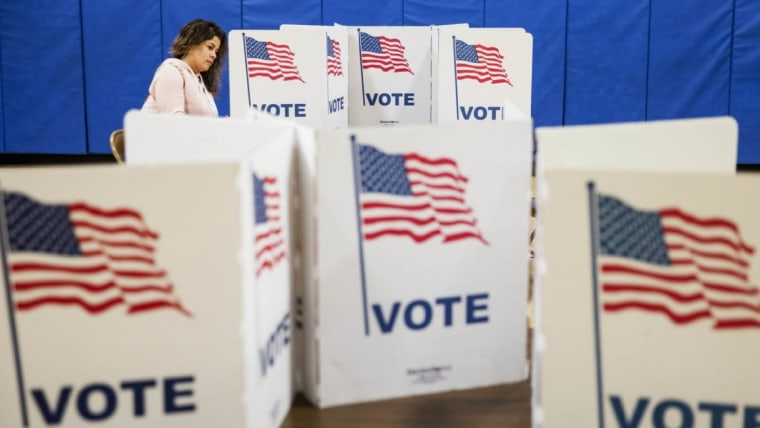By design, presidents have no power over the conduct of federal elections. President Donald Trump’s recent executive order on election administration aims to flip that, trying to take power from both an independent bipartisan federal agency and from the states, in an affront to principles of federalism. This dangerous power grab signals further democratic backsliding.
Most other democracies such as Canada or Australia have a national body that administers national elections. The United States, on the other hand, leaves the administration of federal elections to states and counties, with additional rules imposed by Congress under its constitutional power to regulate congressional elections.
It’s dangerous to put such power in the hands of the president.
After the disputed 2000 election, Congress used those powers to pass the Help America Vote Act which, among other things, established the United States Election Assistance Commission: a federal agency that approves voting technologies eligible for federal subsidies and advises states and counties on best practices. The EAC is described as “independent” in the congressional statute; it has four members, no more than two from any single political party, and it takes three commissioners to approve anything. The design is meant to be bipartisan and independent of political branches, insulating the agency from some politics.
Trump’s executive order tries to turn that around. It purports to direct the EAC to do certain things such as require documentary proof of citizenship on a form that the federal government provides to allow people to register to vote anywhere in the United States for federal elections.
Requiring documentary proof of citizenship to be allowed to register to vote is currently under debate both in Congress and in the states (Arizona has such rules, though they are tied up in litigation). Whether a documentary requirement is a good idea — and I think it is a bad idea, because it could disenfranchise millions of eligible voters and prevent only a tiny amount of fraud — the issue is up to the states and Congress, not to the president.
It’s dangerous to put such power in the hands of the president, who could attempt to manipulate election rules to favor his party and his self-interest. And it seems especially dangerous to take power away from the states when there are many threats to our democracy.

Republicans seemed to understand this point in the past. When Joe Biden was president, he issued his own executive order on voting. The order was a mild one, asking federal agencies to promote voter access and voter registration. Yet Republicans were outraged. Rep. Bryan Steil of Wisconsin, the chair of the House Administration Committee, issued a press release calling the order “another attempt by the Biden Administration to tilt the scales ahead of 2024.” Then-West Virginia Secretary of State Mac Warner dismissed the order as “federal overreach.”
If that order was an overreach, what Trump is trying to do now risks dislocating his proverbial arm from its socket. Not only does the executive order try to direct the independent EAC to take certain action, it also directs the attorney general to sue states that accept and count ballots that are mailed before Election Day but arrive after that day. And it purports to give the Department of Homeland Security and the Department of Government Efficiency the power to subpoena voter registration records from states in a silly hunt for elusive voter fraud.
In the first Trump administration, an advisory commission on “election integrity” chaired by Vice President Mike Pence tried to go after similar voting records. Pence and the commission got pushback from both Democrats and Republicans. One GOP official who refused to hand over such records was Mississippi Secretary of State Delbert Hosemann. “As all of you may remember, I fought in federal court to protect Mississippi voters’ rights for their privacy and won,” he said in 2017. “In the event I were to receive correspondence from the commission requesting (what the other state received) ... My reply would be: They can go jump in the Gulf of Mexico and Mississippi is a great state to launch from.”
I hope Republican officials have a similar response this time around — minus the reference to the “Gulf of Mexico” of course.
